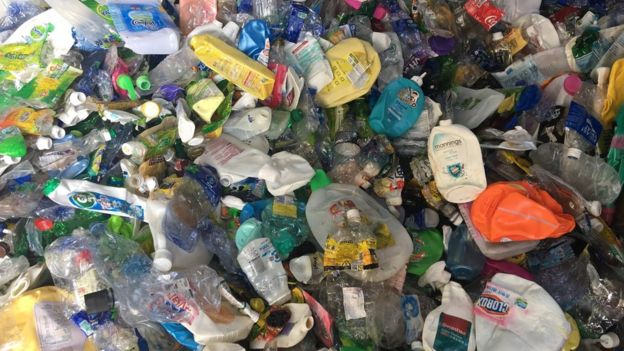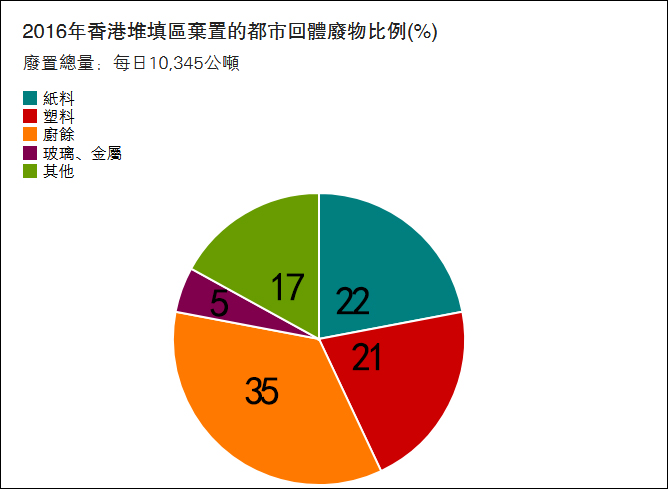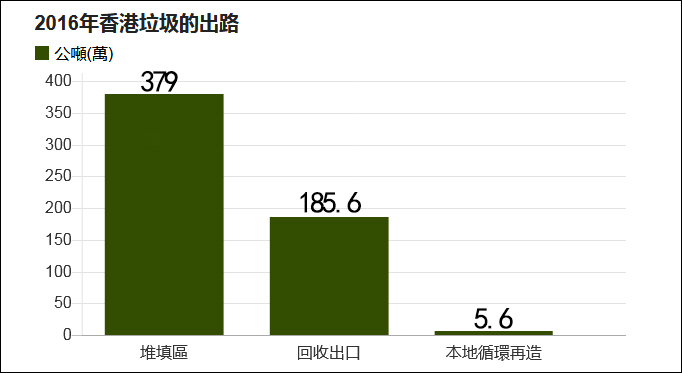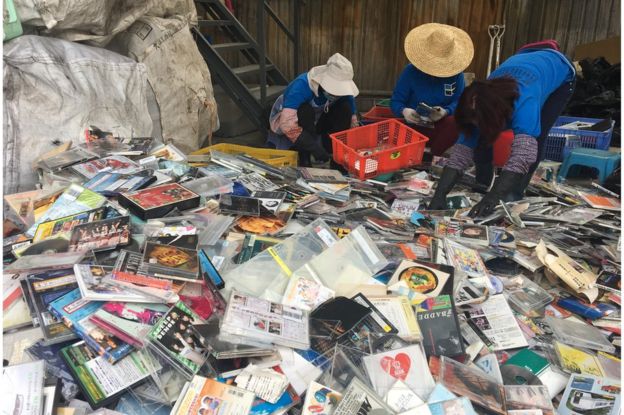[Observer Network Comprehensive Report] This month, China officially launched a new law prohibiting the import of "foreign garbage", which caught the west off guard. All parts of the world are facing the threat of "waste siege" and can no longer transport untreated garbage to China at will. Hong Kong’s recycling industry is also deeply affected by this ban. According to the BBC Chinese website today (4th), with the crackdown on "foreign garbage" in China, Hong Kong must find a way out of reform, on the one hand, turning waste into products, on the other hand, opening up the Southeast Asian market.
According to the report, Hong Kong used to be a transit point for transporting wastes from many countries to the mainland. In the past, it used to transport recycled wastes to the mainland to make money by "left hand and right hand". According to the figures of Hong Kong Environmental Protection Department, up to 97% of the 1.91 million tons of municipal solid waste recovered in Hong Kong in 2016 were exported to places outside Hong Kong before being processed and recycled.
The BBC Chinese website said that China’s policy of banning "foreign garbage" may continue to intensify, and the Hong Kong government’s support is insufficient, so the industry reform is full of risks. To this end, the article puts forward two ways to reform.
One is to treat the waste by ourselves, make the recycled waste into more valuable finished products and sell them in the form of goods all over the world, including the mainland of China..
Take Hankang Group as an example. Its parent company is in Shenzhen. In recent years, it has been engaged in renewable resources business in Hong Kong. Lin Shaohua, chairman of the group, told BBC Chinese website that in response to the ban, his company invested 50 million Hong Kong dollars (about 41.57 million yuan) to add new machines, venues and compression trucks to "productize" the waste. Different from the previous mode of recycling garbage, these machines can classify different plastics and make different products, and it is said that they can handle 100 to 200 tons of waste every day.

Waste plastic picture from BBC Chinese website
He said that the recycling industry is facing the transition period of the industry, and the operating costs of manpower and transportation continue to rise, while the prospects of product prices and sales channels are unclear, and investment is full of risks for the whole industry. At the same time, products should not only meet the requirements of China government, but also meet the requirements of the European Union, Southeast Asia and other regions, so as to enhance the competitiveness of products in the market.
However, Liu Zhifeng, director-general of Green Earth, a Hong Kong environmental protection group, said that since China announced its policy of banning "foreign garbage" in July last year, many recyclers have not had enough time to acquire new machines for transformation. Therefore, in the short term, some recyclers are trying the second way out:Open up the Southeast Asian market.
According to the report, however, as recyclers all over the world are looking for buyers, the markets in Southeast Asian countries are not big enough to accommodate China’s "foreign garbage". In addition, the transportation cost has also increased from more than 60 Hong Kong dollars per ton shipped to the mainland to more than 300 yuan shipped to Southeast Asian countries, and the profit will be significantly reduced.
At the same time, Liu Zhifeng also believes that in the long run, Hong Kong’s recycling industry needs to transform from just collecting waste to manufacturing saleable products. However, the price of such machines is millions, which is very expensive for SMEs.

In 2016, the map of the proportion of municipal recycling waste abandoned in Hong Kong landfills was from the Hong Kong Environmental Protection Department.
Existing disadvantages of recycling industry in Hong Kong
Apart from the challenges brought by the policy changes in China, there are still some long-standing drawbacks in the recycling industry. The BBC Chinese website quoted Liu Zhifeng as saying that Hong Kong only concentrated on recycling "three kinds of paper and two kinds of plastic"-paper, newspapers, office paper and drinks, and waste plastic bottles for personal care products. Among them, "three paper" accounts for 75% of recycled paper products in Hong Kong, and "two glue" accounts for only over 10% of recycled waste plastics. This selective recycling is a "retrogression" of the policy.
Liu Zhifeng also said that one of the reasons why waste was discarded was that citizens did not wash the classified waste properly, and recyclers could not collect these useful wastes. "These waste rubbers are not recyclable. As long as a few processes are added, Southeast Asia can export them. Don’t limit the money that the recycling industry could have earned." Liu Zhifeng called it billions of potential business opportunities.

The way out for garbage in Hong Kong in 2016 is from the Hong Kong Environmental Protection Agency.
In addition, Huang Yinghan, vice president of the Hong Kong Waste Plastics Association, believes that Hong Kong recyclers cannot collect enough waste plastics locally, and the recycling work is very backward. According to the information of Hong Kong Environmental Protection Bureau, in 2016, more than 770,000 tons of plastics were discarded in landfills, while only 125,000 tons were recovered.
Huang Yinghao said that the quality of recycled plastics and how to classify them are also problems. He said that after China cracked down on illegal and inferior garbage imports (also known as Hedge Action) in 2013, many private companies collecting waste plastics had already closed down. At present, non-governmental organizations mainly recycle waste plastics. However, these organizations and recyclers are not equipped with machines, and it is very expensive to rely on manual sorting, so they only import sorted waste from overseas and then process it into products for export.

Manual garbage sorting Figure from BBC Chinese website
Both Huang Yinghao and Liu Zhifeng believe that it is more convenient and cheaper to put waste into landfills than to separate and recycle waste in Hong Kong. In addition to reducing waste at the source, we should also adopt a "producer responsibility system" for waste and charge fees for garbage. The Hong Kong government plans to implement municipal solid waste charges in the second half of 2019.